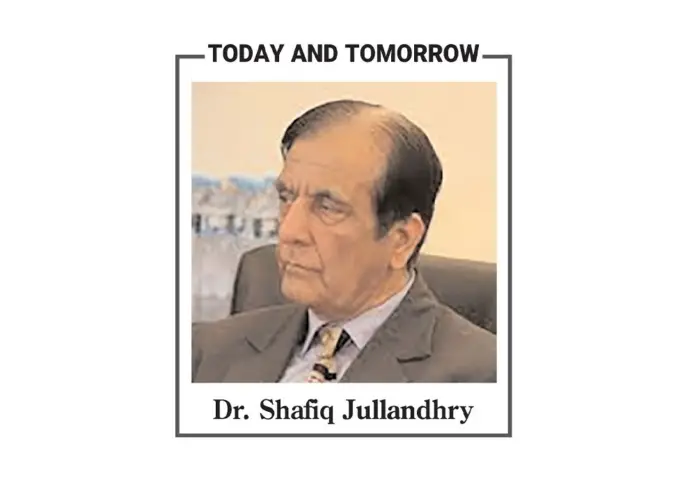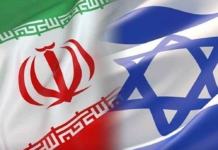Along with Dr Abdul Salam Khurshid and Dr.Miskeen Ali Hijazi, Wari Mir and Dr.Mehdi Hasan were also essential teachers of the Journalism Department of the Punjab University during the 1970s and 80s. All of them were unique in their beliefs, attitudes, and teaching styles. I was impressed by all their personalities. I used to read Daily Nawa-e-Waqt during my college days. From this department, former department head Marghoob Siddiqui and Waris Mir were regularly contributing their articles to this newspaper. I was a fan of both of these writers before coming to this department; I had also read some of the pieces of Dr.Miskeen Hijazi in Daily Kohistan and gone through the book ‘Sahafat Pakistan-o-Hind Main’ by Dr.Abdul Salam Khurshid.
Compared with others, Waris Mir was a bit bulky and his glasses looked exquisite on his face. He was a forceful newspaper writer, and besides that, he was an excellent orator. Whenever he had to deliver a speech at some social gathering in the city, he prepared well for it and never joined any public gathering without preparation. Proportionately, his personality was more in width than in height. He always used to have friendly relations with selected students. He was fond of discussing literature, Pakistan’s history, Allama Dr.Muhammad Iqbal, and philosophy with the students. Generally, he liked to retain a happy atmosphere in his circle and enjoyed jokes. When I was a student of MA Journalism Part-I, there was an Urdu essay competition in the department. I can remember that the classroom was full of part-one and part-two students who wanted to participate in the competition. Waris Mir was conducting this competition. He entered the classroom and wrote on the chalkboard: “Daur-e-Jadeed Kay Taqazay – Urdu Sahafat kay liay aik challenge” (Challenges of new era for Urdu journalism).
I wrote a four to five page essay and handed it over to the teacher; after a week, students assembled in the main classroom again for the result. Waris Mir and Mehdi Hasan entered in the room. Waris Mir was chief judge. He had some papers in his hand. Before announcing the first and second positions, he said that he was amazed to see such an excellent standard of the essay written randomly in this classroom. The other day, he came into the classroom and wrote the topic on the board. No one was aware of the area of the essay to be written by this contestant. He said that he himself couldn’t write such a beautiful essay if he was a contestant. Then, he read out the whole article and then announced that this essay’s writer, who got the first position, was Shafiq Jullandhry. During my college and university days, I won dozens of competitions and prizes, but the way Waris Mir encouraged me was unforgettable.
Waris Mir had a habit of discussing his Nawa-e-Waqt articles with his students and colleagues and wanted their feedback on his writings. He also appreciated good work of others with loud words. I published an article on ‘dummy personalities – created by the press.’ Waris Mir read it critically and congratulated me on writing a laudable article. Then there was my first book on Urdu column writing. I didn’t write anything about Waris Mir’s articles or his contribution to the profession of journalism by considering his writing as articles, not columns, because they were without any permanent name. Waris Mir read my book thoroughly and appreciated my hard work, and explained that he knew the just reason for not including him in the columnists’ category.
I started a series of children’s stories in the Daily Jang. It was ‘Papu kay Karnamay.’ Waris Mir read all the installments of this story. When it finished, he disclosed it to me and said: “You did wonderful work for teaching so much about the world realities to the children in such an interesting way. You are a mature writer, but you don’t seem to be that great.” Waris Mir would also criticized me on many occasions, but his criticism was always wrapped up with love and affection. He was a well-known intellectual in the country. His approach was that of a liberal writer’s approach. He wrote on so many ‘controversial’ topics. His articles, especially on women’s rights, disturbed so many in the ‘religious’ circles. He also wrote so much against imperialism and was suspicious that different powers had become his enemy only because of his righteousness.
He didn’t write any book, but his brilliant sons have compiled all his valuable articles in different books. He didn’t publish in research journals, but his well-researched journalistic articles were equaled to research papers. He went to England to pursue a PhD. But there, he found so much material worthy of reporting back to the nation and started writing for Daily Nawa-e-Waqt under the title of ‘London Nama.’ Whatever policies or ideologies were considered right by him, he never hesitated to express them blatantly. He often told the students that life is so short they should not remain so serious all the time and must find some time for light gossip and for the exchange of jokes. He suffered from some heart problems but never took them seriously. For it, he consulted only a Hakeem who told him that it is just minor stomach trouble. He died at the age of 50 in July 1987.






